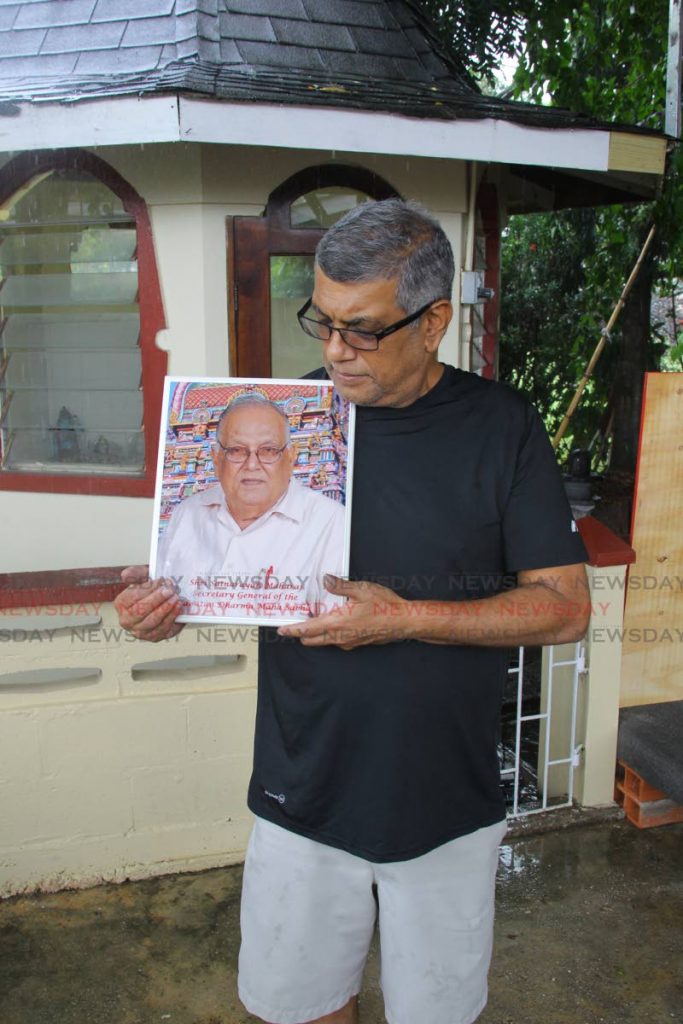Trinidad and Tobago sedition law under focus in Privy Council

TRINIDAD and Tobago’s sedition law is again in focus, as the Privy Council has been asked to determine if it imposes disproportionate and unjustified restrictions on freedom of speech.
On Tuesday, Lords Lloyd-Jones, Sales, Stephens, Richards, and Sir Rabinder Singh reserved their decision on the appeal brought by the secretary general of the Sanatan Dharma Maha Sabha (SDMS), Vijay Maharaj – on behalf of his late father Satnarayan Maharaj – and the SDMS’s Central Broadcasting Services Ltd (CBSL).
Maharaj and the CBSL appealed the ruling of the Court of Appeal in 2021 when it overturned the High Court’s declaration that the colonial-age sedition law was unconstitutional.
In their complaint, Maharaj and the CBSL argued that the Sedition Act was vague, uncertain, open to abuse by prosecuting authorities, archaic and repressive. They also contend the act violated the principle of freedom of expression, was not protected by the constitutional saving clause, which protects similar pre-independence legislation from review, and violated the principles inherent in a democratic state.
It is the State’s position that not only was the law valid, but also the case advanced by Maharaj and the CBSL did not challenge a conviction, but was a free-standing challenge to the status of an existing law saved by the Constitution.
Representing Maharaj and the CBSL at the Privy Council were Peter Knox, KC, Ramesh Lawrence Maharaj, SC, Robert Strang, Dinesh Rambally, Kiel Taklalsingh, Stefan Ramkissoon and Rhea Khan.
Senior Counsel Fyard Hosein, Rishi Dass and Vanessa Gopaul represented the Attorney General.
The elder Maharaj filed the constitutional claim after police armed with a warrant went to CBSL’s offices, after he made certain statements on his Maha Sabha Strikes Back programme on TV Jaagriti on April 15, 2019.
In the broadcast, Maharaj said citizens living in Tobago were lazy and the men were rapists.
Even though he had not been charged, Maharaj later suggested during an SDMS Indian Arrival Day celebration that a charge for sedition against him was inevitable.
Although he died in November 2019, his son was allowed to continue the matter as the representative of his estate.
Tuesday’s hearing was broadcast on Radio and TV Jaagriti with permission from the Privy Council, CBSL said in a release.
In his submissions, Knox took the judges through the history of the Sedition Act and the tenets of the Constitution. He also maintained that political speech was an essential feature of democracy, as was the ability to express criticism.
He argued that any law that penalised political speech was inconsistent with the constitutional guarantee of a democratic state.
In response, Hosein maintained that the case was highly theoretical, as no specific provision of the Sedition Act was being engaged in the appeal, and even so if a charge were ever laid, the courts had to assess the merits of the facts in each individual case, and only then could a determination be made on whether any interference was necessary in a democratic society.
He also submitted that if the court agrees that Section 1 of the Constitution – which says TT shall be a sovereign democratic state – cannot invalidate a pre-existing 1976 statute, then any analysis of whether it violated the freedom of expression would serve no practical purpose.
In 2020, Justice Frank Seepersad upheld Maharaj and CBSL’s complaints. However, Justices of Appeal Mark Mohammed, Charmaine Pemberton and Maria Wilson overturned his ruling and ruled that he got it wrong when he ruled that parts of the Sedition Act were too vague and uncertain to be considered valid law.
“Some aspects of the offence of sedition, by their very nature (unlike many other criminal offences of which three examples are murder, rape, and robbery), are incapable of a precise definition.
"They are therefore best described by a general reference to the nature of the activities as opposed to the methods by which they can be committed since they can occur in many varied circumstances,” the Appeal Court judges said.
They also held that the generalisation in the wording helped to ensure there was a level of flexibility with changing circumstances and societal evolution.
“Actions which historically might have had a tendency to deprave and corrupt, or to shock and outrage the feelings of the general public or sections of the public, would not necessarily have the same impact in contemporary times,” they said.
They also ruled that the legislation did meet the specific objectives required to be deemed a valid law.
While the complaint was being adjudicated in the local courts, the State had sought and been granted a stay of Seepersad’s ruling pending the outcome of all challenges.
Essentially, the stay affected sedition cases before the courts, including one against the late Jamaat-al-Muslimeen leader Yasin Abu Bakr.
While the decision on the suspension was still pending, Public Services Association (PSA) President Watson Duke successfully applied to Chief Magistrate Maria Busby-Earle-Caddle to be discharged of the sedition charge against him.


Comments
"Trinidad and Tobago sedition law under focus in Privy Council"